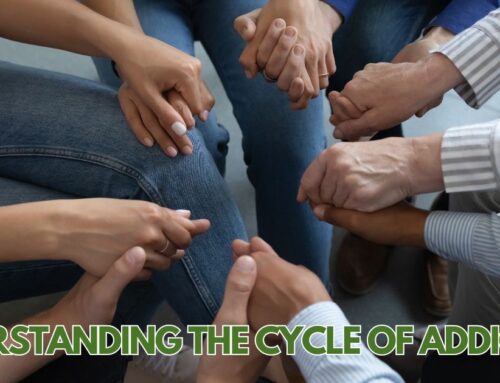The Role of Forgiveness in Emotional Healing
At White Oak Counseling and Recovery Center, we often encounter individuals struggling with the burdens of resentment, anger, and hurt. Central to the journey of emotional healing is the concept of forgiveness, a principle deeply rooted in the Christian faith and recognized for its profound psychological benefits. This blog post explores the role of forgiveness in emotional healing, offering practical advice on how to forgive oneself and others to foster emotional freedom and healing.
Understanding Forgiveness
Forgiveness, from a Christian perspective, is the act of letting go of resentment, anger, and thoughts of revenge against someone who has wronged you by confessing your wrongdoing and asking the Lord for forgiveness. It doesn’t mean forgetting or condoning the wrongdoing but rather choosing to release the grip of bitterness to make way for peace, compassion, and kindness. Psychologically, forgiveness is a process that allows individuals to heal from the pain and regain a sense of personal power.
The Psychological Benefits of Forgiveness
Forgiveness is linked to numerous psychological benefits, including reduced anxiety, depression, and stress levels; lower risk of heart disease; improved self-esteem; and stronger relationships. It’s also associated with increased happiness and overall well-being. By freeing oneself from the chains of unforgiveness, individuals can experience a profound sense of liberation and emotional healing.
Forgiving Others
Forgiving someone who has wronged you can be incredibly challenging, especially when the hurt runs deep. However, the act of forgiveness is more about you and your peace than about the other person. Here are some steps to begin the process:
- Acknowledge Your Feelings: Recognize the pain and allow yourself to feel the emotions without judgment.
- Decide to Forgive: Forgiveness is a choice. It’s a commitment to a process of healing, not a one-time event.
- Empathize: Try to see the situation from the other person’s perspective. Understanding their motivations doesn’t excuse the behavior but can help in letting go of resentment.
- Express Your Forgiveness: This can be done silently, through prayer, or directly to the person, depending on what feels right for you.
Forgiving Yourself
Self-forgiveness is a common term thrown around today that can be often misused and misunderstood. Holding onto guilt and self-blame can be crippling, preventing you from moving forward. A Common philosophy is that you can just forgive yourself but all this is, is a faulty framework for true peace and satisfaction. As human beings, we can only seek forgiveness for ourselves from a higher power. Here is how to find peace and a new sense of self-esteem commonly referred to as “self-forgiveness” from a Christian perspective:
- Accept Responsibility: Acknowledge your mistakes and confess your wrongdoing to the Lord, receiving forgiveness for yourself.
- Learn from the Experience: Consider what you can learn from the mistake and how you can avoid similar issues in the future.
- Practice Self-Compassion: Treat yourself with kindness and understanding. Realize no one is perfect and count your blessings rather than disappointments.
- Seek Redemption: If there is conflict between you and another person, then make amends if possible, and engage in acts of kindness or service to others as a way to demonstrate your sincere love for them.
The Power of Prayer and Scripture
Incorporating prayer and scripture into the forgiveness process can provide comfort and guidance. Praying for those who have hurt you, as difficult as it may seem, can be a powerful step towards healing. Scriptures like Colossians 3:13 (“Bear with each other and forgive one another if any of you has a grievance against someone. Forgive as the Lord forgave you.”) remind us of the importance of forgiveness in our spiritual and emotional lives.
Creating a Culture of Forgiveness
Building a culture of forgiveness in your life and relationships means practicing forgiveness regularly. It involves:
- Communicating openly and honestly when feelings are hurt.
- Choosing to let go of minor grievances.
- Encouraging and supporting others in their forgiveness journeys.
Conclusion
The role of forgiveness in emotional healing cannot be overstated. It is a challenging yet incredibly rewarding process that leads to emotional freedom, improved health, and deeper, more meaningful relationships. At White Oak Counseling and Recovery Center, we support individuals in navigating the complexities of forgiveness, guiding them toward a path of healing and wholeness. Remember, forgiveness is a gift you give yourself, a crucial step towards reclaiming your peace and joy.





